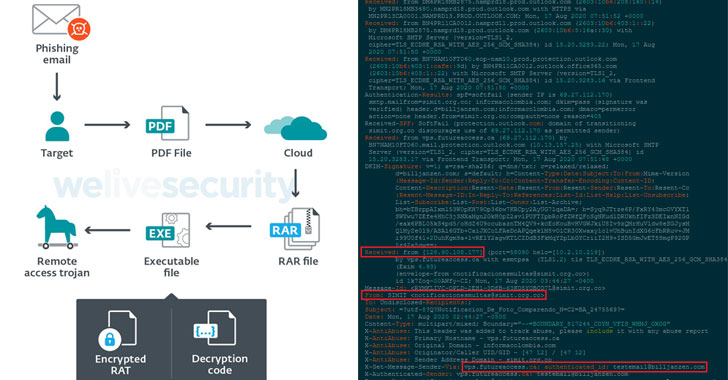- +31 320 760020
- support@yokdata.com

Cybersecurity researchers took the wraps off an ongoing surveillance campaign directed against Colombian government institutions and private companies in the energy and metallurgical industries.
In a report published by ESET on Tuesday, the Slovak internet security company said the attacks — dubbed "Operation Spalax" — began in 2020, with the modus operandi sharing some similarities to an APT group targeting the country since at least April 2018, but also different in other ways.
The overlaps come in the form of phishing emails, which have similar topics and pretend to come from some of the same entities that were used in a February 2019 operation disclosed by QiAnXin researchers, and subdomain names used for command-and-control (C2) servers.
However, the two campaigns diverge in the attachments used for phishing emails, the remote access trojans (RATs) deployed, and the C2 infrastructure employed to fetch the malware dropped.
The attack chain begins with the targets receiving phishing emails that lead to the download of malicious files, which are RAR archives hosted on OneDrive or MediaFire containing various droppers responsible for decrypting and running RATs such as Remcos, njRAT, and AsyncRAT on a victimized computer.
The phishing emails cover a wide range of topics, including those about driving infractions, attend court hearings, and take mandatory COVID-19 tests, thus increasing the likelihood that unsuspecting users will open the messages.
In an alternate scenario observed by ESET, the attackers were also found to use heavily obfuscated AutoIt droppers that used shellcode to decrypt the payload and another to inject it into an already running process.
Full article on https://thehackernews.com/2021/01/experts-uncover-malware-attacks-against.html
#colombia #government #malware #attack #mindyourdata #yokdata #blog